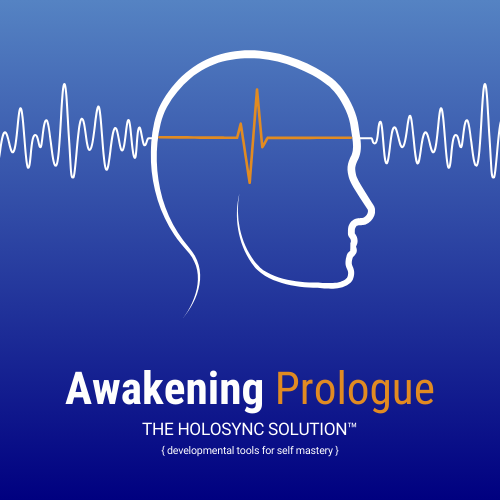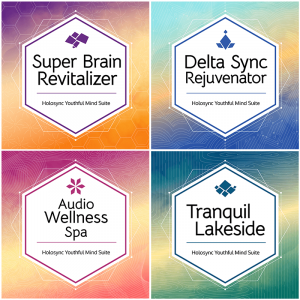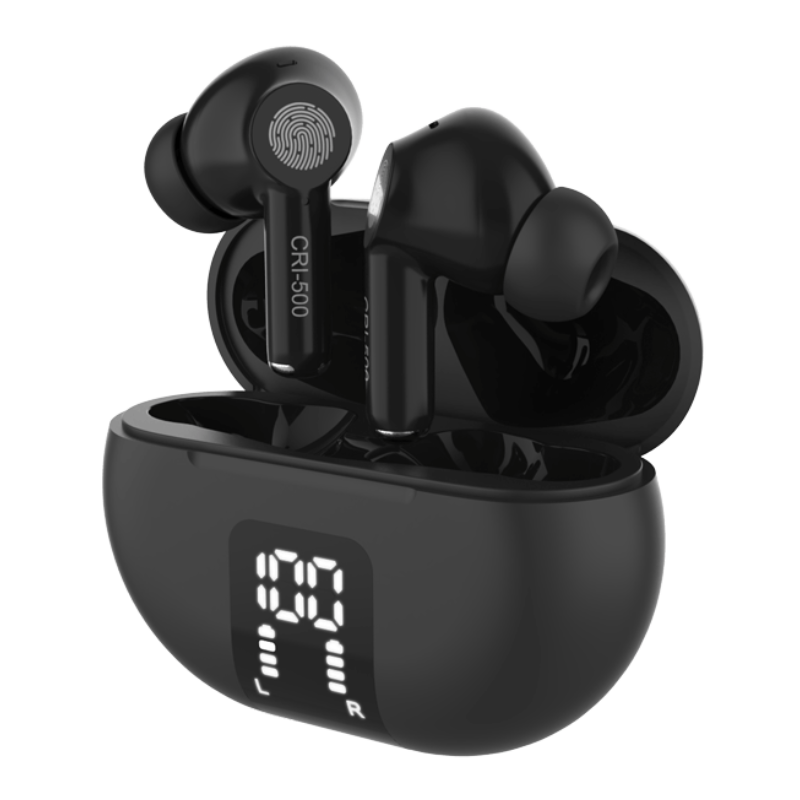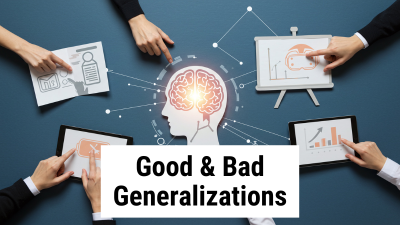
Mind Power #437: The Flexible Brain (Our Neurons Wear Many Hats)
Issue #437 – Monday, August 19, 2024
Do you know what “brain plasticity” is?
It’s the brain’s ability to change and adapt its connectivity, structure and function in response to a stimulus.
We’ve seen that consistently meditating with Holosync, for example, will improve your prefrontal cortex while soothing an often-overactive limbic system.
But now scientists are finding that the brain is even more flexible than previously thought!
Because while we already knew that the brain as a whole was adaptable…
…it turns out that our brain cells (neurons) are also quite versatile!
To explain more about this groundbreaking research and what it means for you, I’m sharing an essay with you today from Mind Power Managing Editor Ryan Standifird.
Ryan will explain these new findings and help you understand how the brain coordinates complex tasks…
…and the one thing that can get in your brain’s way.
I know you’re going to love this!
Cheers,
MaryEllen Tribby
Centerpointe CEO

Centerpointe CEO
P.S.
P.S. We’ve added 5 new soundtracks to the Holosync Healthy Life Collection!
Scroll down to our Check it Out section to learn how you can build your own personalized Holosync playlist today!
The Flexible Brain
Our Neurons Wear Many Hats
By Ryan Standifird
There are new studies coming out every day revealing more and more about the enigma that is the human brain.
And some of these findings are completely flipping the script on previous theories the scientific community used to believe about how the brain works.
For example, over the last few decades it was common consensus that each brain cell (or neuron) has a specific purpose. This neuron is for storing memories. That one is for releasing brain chemicals. This one is for regulating digestion. Etc..
But now scientists from the Picower Institute at MIT are discovering that our neurons are much more flexible in their roles than previously thought thanks to a function they call “mixed selectivity.”
Our Adaptable Brains
Imagine your brain as a restaurant, and you are the owner. Your employees are like the brain cells that each have their own duties. You’ve got the manager, the dishwashers, the servers, the hosts and the chefs all working together with their own assigned responsibilities.
But suddenly it’s rush hour and your brain cells are rushing around to make sure that everything is being taken in a timely manner.
And when there’s a group that needs help - like the dishes start piling up, or a table hasn’t gotten their order yet, or a meal needs to be re-cooked - the manager relays these messages and lets the rest of the employees know that they need to switch gears and help each other out.
Maybe a chef finds a quick minute to help wash the dishes. Or a dishwasher takes the food out to a table when it’s ready. Maybe a host takes someone’s order or a waiter starts cutting up carrots.
It’s quite useful to have a team that knows how to do each other's jobs.
And your brain works the same way.
While not every neuron can handle every other task (maybe a dishwasher wouldn’t ever act as the host, for example), the evidence so far shows that certain brain cells are much more flexible and able to help with a variety of tasks.
The Secret to Coordination
Again, this concept is making waves in the scientific community. We are finding out that the brain is even more astounding and capable than we previously thought.
So, if your neurons can handle a multitude of different tasks, how do they know which one to follow? Who is the real “manager” keeping things running smoothly even when there’s a line out the door?
According to the study, the part of the brain that coordinates these neurons is the medial prefrontal cortex (mPFC). This is the control center for the brain that’s responsible for creative problem solving and long-term decision making.
The mPFC uses a combination of brainwaves and neurotransmitters to send and receive messages to the other parts of the brain telling them what task should be prioritized.
For example, let’s say you visit a local lunch buffet over the weekend. You grab your plate and begin to navigate the various buffet tables with a rumbling stomach.
All the while, your mPFC is sending out brainwave fluctuations and releasing certain neurochemicals that will get your brain cells all working together to accomplish certain tasks.
As you pass the mashed potatoes, certain brain cells access what you think that dish might taste like, and how that taste might change when gravy is added. Your brain cells might also retrieve some memories related to mashed potatoes if it’s deemed important.
Meanwhile, other cells are playing a mini game of Tetris with the size of the proportions from the green beans, the chicken and the potatoes to make sure that you can fit everything on the plate.
And other neurons are helping to predict what your second and third buffet plates might look and taste like.
All the while, the groups of brain cells carrying out these tasks will shift and change depending on how much effort your mPFC thinks it needs to apply to any one of these particular tasks.
So let’s say that your plate is getting full, it’s getting heavy, but you want to try and fit a biscuit onto it somewhere. Your mPFC will quickly assign more brain cells to solve this problem. So instead of thinking about how things taste, some of those neurons will instead help with organizing the food on the plate.
Where could the biscuit fit? Will I be able to carry it all without dropping? Should I just grab one later? No, I want it now. Okay, maybe place it right between the steak and the mac n cheese. Perfect!
It’s this flexibility of brain resources that makes us so resilient and diverse.
But there’s one thing that can get in the way of this intricate dance in the brain:
Stress.
Stress: the Big Brain Disrupter
When your mPFC is in control of your brain, it operates with quick flexibility and coordination.
But when you’re under stress…
…the flow of information from your mPFC to the rest of the brain becomes disrupted.
That’s because stress causes the limbic system to initiate its “fight-or-flight” survival mode. As a result, it pumps the brain with cortisol - a hormone that causes your brain cells to devote their attention to survival. This means your body becomes tense so as to make quick reactions, and your brain’s priority changes from long-term goals to short-term immediate relief from stress.
When you’re stressed out, the mPFC is shoved aside and the brain loses its flexibility, creativity, and much of its effectiveness. Stress makes it difficult to sleep, focus, and leads to higher rates of addiction to counterproductive coping mechanisms.
That’s why it’s important to have an effective and healthy way to manage your stress.
The Easy Stress Reducer
Luckily, there’s a powerful tool that makes it easy to release stress while simultaneously building up resistance to stress.
I’m talking about meditation - specifically meditation with Holosync.
Holosync influences your brainwaves, drawing them into the most beneficial brainwave states associated with deep meditation.
It’s in these states that neurochemicals are balanced, awareness is improved, and the mPFC is enhanced. It’s also the most effective way to build your resilience to stress.
Holosync makes it easy to reach these states with just the press of a button.
Knowledge Is Power
We’re learning more about the brain every day.
And when we can gain a better understanding of how the brain works, we also become empowered to improve how it functions, and as a result, improve our lives.
I look forward to sharing more brain revelations and tips with you soon!
Holosync Healthy Life Collection

After years and years of requests to purchase individual Holosync soundtracks, now you can!
Introducing the Holosync Healthy Life Collection - a special library of 26 Holosync soundtracks where you can pick one, two, three, or more Holosync soundtracks so you can build a playlist that fits your life.
And right now when you buy 3 HHLC soundtracks you’ll get the fourth for free!
Whether you want a mini vacation away from stress, you want to sharpen your focus, attract wealth, inspire new ideas, or spur vivid dreaming, we have a Holosync meditation designed to do exactly that.
Now with 5 NEW Affirmation Soundtracks!
Wise Words
“It’s important to have an effective and healthy way to manage your stress.”
- Ryan Standifird
This Really Happened
So, I have done the 5 day challenge, finished yesterday. I am sitting here listening to a video of Bill talking about all the benefits of Holosync when it dawned on me…the 5 day challenge has really affected me emotionally.
You see, I have been in a relationship that is like riding a rollercoaster. Last weekend was too much so I took steps to get off the rollercoaster. Prior to this 5 day challenge I would have been an emotional wreck over this.
Well, I’m sitting here in awe. I can only give holosync credit for what I am experiencing. I am noticing how confident I am and how I am not mourning all aspects of the loss of this relationship. I actually have not shed even one tear. But rather, I have been thinking about how much I have been held back by staying in this relationship and I am thinking about all the opportunities in my future. I am simply excited to move forward!
Wow…I wonder what the future holds!
~Stacey B
5-Day Challenge Participant
We Want to Hear From You!
What’s your go-to method to reduce stress?
Post your story on our Facebook Page.
Not on Facebook? Tell me about the impact that meditation with Holosync has had on your daily life. Stress? Sleep? Weight Loss? Focus? Spiritual Connection? Other? Email your story here.

